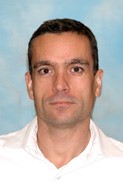Teaching children to read: Phonology, morphology, and ‘mental flexibility’ as drivers of measurable change
Export to calendarBio
Robert will present data on the effects of four theory-driven interventions in grades 1, 2, and 3 in Canada (equivalent to year 1-3). In each case we evaluated experimenter-delivered, small group word reading programs among ‘at-risk’ poor readers of regular schools versus controls. Study 1 explored Direct Mapping and Set-for-Variability (DMSfV) which emphasizes the use of ‘flexible phonics’; Study 2 evaluated the impact of teaching complex grapheme–phoneme correspondences derived from a ‘Simplicity Principle’; Study 3 contrasted Structured Word Inquiry, an approach that connects orthographic morphology to phonology and word knowledge in the teaching of literacy in Grade 3 poor readers. Study 4 explored the effects of orally delivered language analysis versus print-based word decoding morphology interventions in Grade 3 poor readers. In each case, the interventions produced measurable value added for participants over matched controls. Implications both for theories of reading development and for evidence-based practice are considered.
About the speaker

Robert is Professor and Head of the Department of Psychology and Human Development at University College London. Until 2017 he was William Dawson Scholar at McGill University, Montreal, Canada. He has published nearly 100 research articles in international journals exploring children’s early reading and spelling including over 30 reading intervention studies on 4 continents (North America, United Kingdom, Hong Kong and Australia). He is particularly interested in preventing early reading and spelling problems, often using technology. He is a school-based psychologist and classroom teacher by training, and as such maintains an interest in making schools effective learning places for all children.





